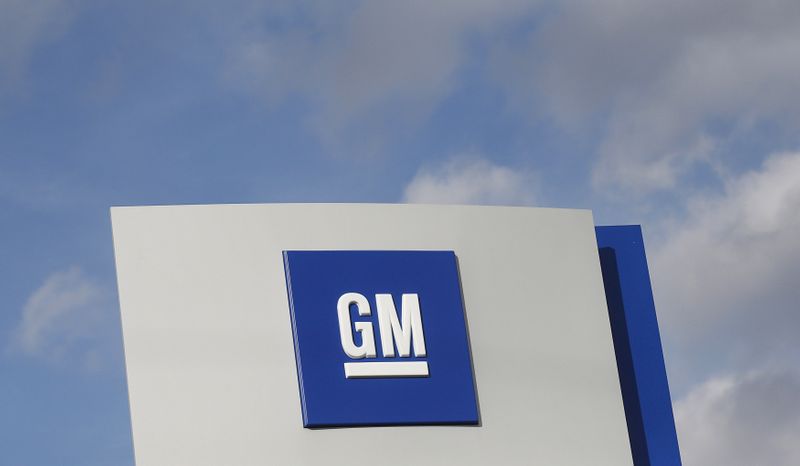This post was originally published on this site
https://i-invdn-com.akamaized.net/trkd-images/LYNXMPEG141AV_L.jpg
By Ben Klayman and Joseph White
DETROIT (Reuters) – General Motors Co (N:) on Wednesday forecast flat profits for 2020 and reported a better-than-expected fourth quarter result as it kicked off a new effort to win over investors stampeding into shares of electric car rival Tesla Inc (O:).
The automaker’s shares were up 1.8% in early trading.
GM said it expects earnings per share for 2020 in a range from $5.75 to $6.25, excluding one time items, taxes and interest. Analysts are expecting GM to earn $6.23 this year on a comparable basis, according to IBES data from Refinitiv.
The automaker forecast $6 billion to $7.5 billion of automotive free cash flow this year, a range that extends above the $6.5 billion GM’s auto operations could have generated in 2019 excluding the costs of the 40-day United Auto Workers strike last fall.
GM expects U.S. car and light truck sales to fall by about 500,000 vehicles from last year’s 17.1 million.
“Good enough,” J.P. Morgan analyst Ryan Brinkman wrote about GM’s 2020 guidance in a note Wednesday morning.
GM appeared to be getting better treatment from Wall Street than rival Ford Motor Co’s (N:), whose shares slumped Wednesday after the company on Tuesday delivered a weaker-than-expected 2020 forecast. Ford warned of higher warranty costs, lower profits at its credit arm and continued investments in future technology such as self-driving cars.
GM’s fourth quarter profits took a $3.6 billion hit from a 40-day United Auto Workers strike that shut down the automaker’s profitable U.S. operations. Profits from its operations in China also fell.
The company said pre-tax profits were 5 cents a share for the latest quarter excluding certain restructuring costs, down from $1.43 a year earlier. Analysts had forecast pre-tax income of a penny a share for the latest quarter.
Including restructuring costs, GM had a fourth quarter net loss of $194 million, or 16 cents a share.
Revenue in the quarter fell nearly 20% to $30.8 billion.
GM said income from its joint ventures in China fell to $200 million in the fourth quarter from $300 million a year earlier, as wholesale vehicle deliveries fell by 20%.
The Detroit company said “slower adoption of new fuel-efficient technology” by Chinese customers hit fourth quarter results from the world’s largest auto market. The company is backtracking from an effort to sell vehicles with three-cylinder engines in China, and will offer more four-cylinders.
GM Chief Financial Officer Dhivya Suryadevara said Wednesday the automaker had “people working around the clock here to mitigate the impact” of disruptions to production and parts supply from China’s deadly coronavirus outbreak. GM will make decisions to restart idled operations in China “plant by plant,” Suryadevara said.
But even before the virus outbreak, GM expected the Chinese market to be volatile this year. China’s auto market is maturing, Suryadevara said, which means more competitive pressure on prices and slower growth than in the past.
“We are bullish on the Chinese industry and our position in China long term,” she told reporters ahead of presentations to analysts.
Fusion Media or anyone involved with Fusion Media will not accept any liability for loss or damage as a result of reliance on the information including data, quotes, charts and buy/sell signals contained within this website. Please be fully informed regarding the risks and costs associated with trading the financial markets, it is one of the riskiest investment forms possible.

